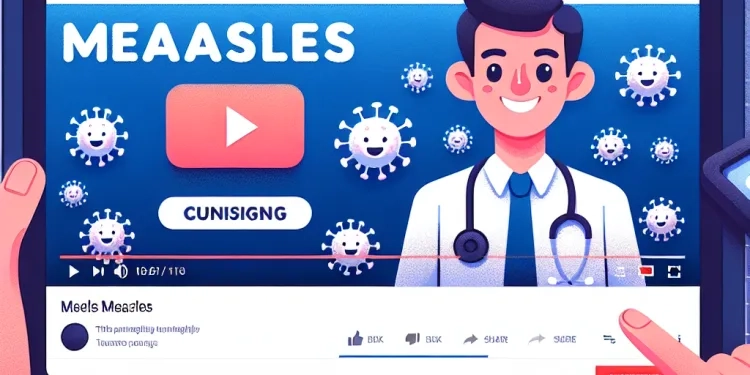
Find Help
More Items From Ergsy search
-
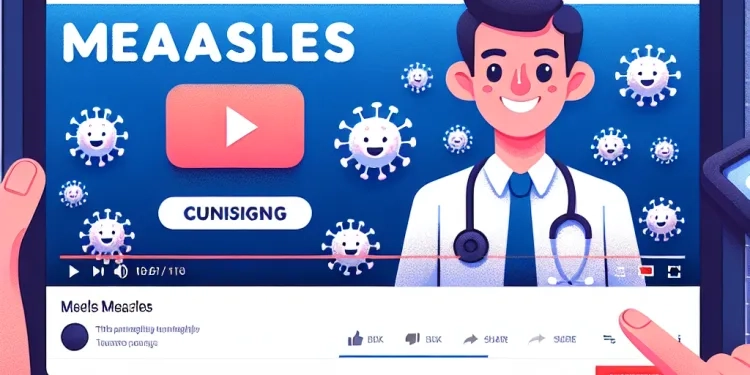
Measles
Relevance: 100%
-

Is there a treatment for measles?
Relevance: 95%
-

Is there a treatment for measles?
Relevance: 95%
-
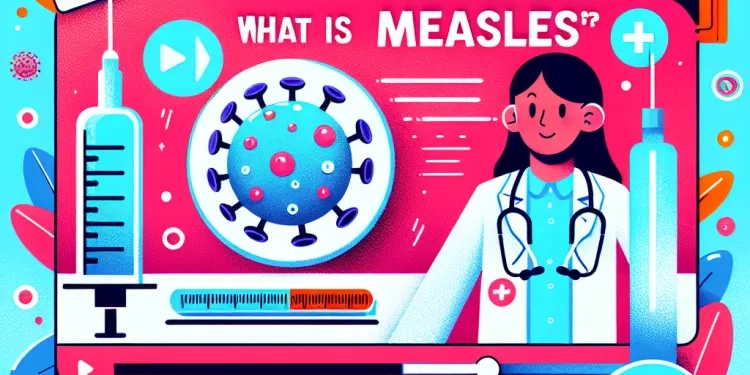
What is measles?
Relevance: 94%
-

How is measles transmitted?
Relevance: 91%
-

What are the symptoms of measles?
Relevance: 91%
-

How contagious is measles?
Relevance: 91%
-

Can measles be serious?
Relevance: 91%
-

How is measles transmitted?
Relevance: 91%
-

How is measles spread?
Relevance: 90%
-

Are measles outbreaks common in the UK?
Relevance: 90%
-

Can measles be treated?
Relevance: 90%
-

What are the symptoms of measles?
Relevance: 90%
-

Are measles cases rising in the UK?
Relevance: 90%
-

Is Rubella the same as measles?
Relevance: 90%
-

What are the symptoms of measles?
Relevance: 90%
-

Are measles more common outside of the UK?
Relevance: 87%
-

Can measles cause complications?
Relevance: 87%
-

Are adults in the UK at risk from measles?
Relevance: 86%
-

Can adults get measles?
Relevance: 86%
-

Why is measles less common in the UK?
Relevance: 86%
-
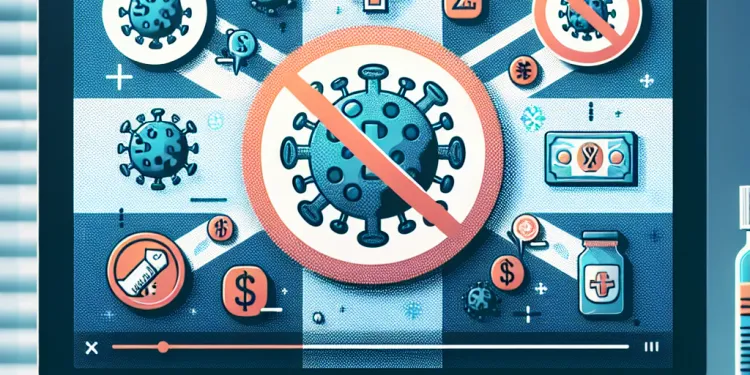
How can measles be prevented?
Relevance: 86%
-

Are measles cases currently rising in the UK?
Relevance: 86%
-

How long is a person with measles contagious?
Relevance: 84%
-

Who is most at risk from measles?
Relevance: 84%
-

What should I do if I suspect I have measles?
Relevance: 84%
-

How does the UK monitor measles outbreaks?
Relevance: 84%
-

Why are measles outbreaks still occurring?
Relevance: 84%
-

What is causing the rise in measles cases in the UK?
Relevance: 83%
-
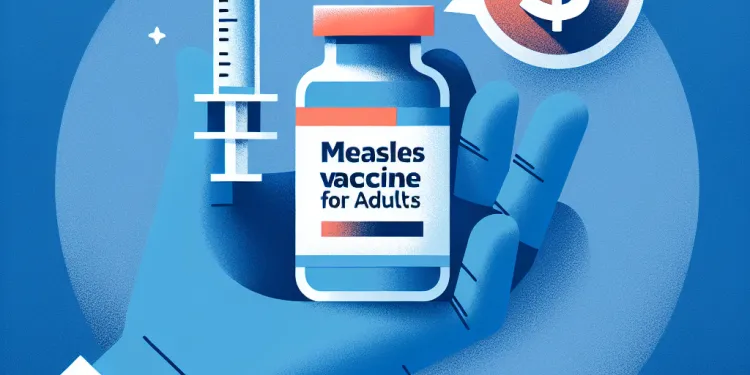
Can the measles vaccine be given to adults?
Relevance: 83%
-

How can measles outbreaks be prevented?
Relevance: 83%
-

What complications can arise from measles?
Relevance: 82%
-

Which countries have higher rates of measles?
Relevance: 82%
-

What is the current measles vaccination coverage in the UK?
Relevance: 82%
-

How does vaccination affect measles rates?
Relevance: 81%
-

Is there a risk of global spread if measles cases rise in the UK?
Relevance: 81%
-

Is it necessary to get a measles vaccine before travelling?
Relevance: 81%
-

What should you do during a measles outbreak?
Relevance: 80%
-

Why has the UK lost its measles elimination status?
Relevance: 80%
-
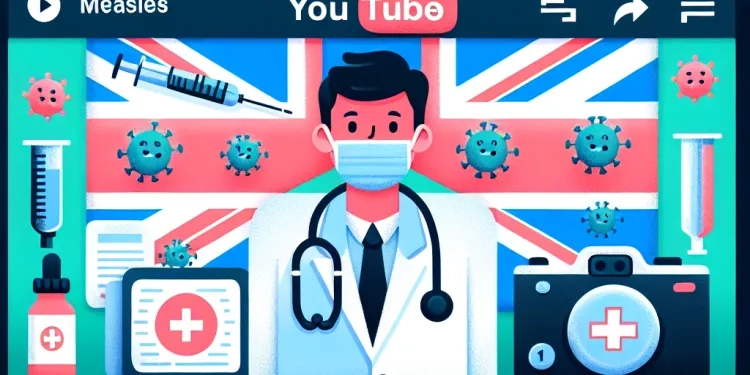
Can you get measles more than once?
Relevance: 79%
Understanding Measles
What is Measles?
Measles is a highly contagious viral infection caused by the measles virus, a member of the Paramyxoviridae family. It is an airborne disease that typically spreads through respiratory droplets from coughing and sneezing. Measles is characterized by a distinctive red rash and is known for its potential complications, making vaccination essential in preventing its spread.
Symptoms of Measles
The initial symptoms of measles generally appear 10 to 12 days after exposure and resemble those of a severe cold, including fever, cough, runny nose, and red, watery eyes. A few days later, a widespread skin rash develops, usually beginning on the face and spreading to the rest of the body. White spots known as Koplik's spots may appear inside the mouth, serving as a hallmark of the infection.
Complications and Risks
While many recover within a few weeks, measles can lead to serious complications, particularly in young children and individuals with weakened immune systems. Risks include pneumonia, encephalitis (swelling of the brain), and in severe cases, death. Measles can also cause long-term health problems, such as subacute sclerosing panencephalitis (SSPE), a rare but fatal brain disorder that may develop years later.
Prevention through Vaccination
Vaccination is the most effective way to prevent measles. In the United Kingdom, the measles, mumps, and rubella (MMR) vaccine is part of the childhood immunization programme, typically given in two doses to ensure immunity. High vaccination coverage has significantly reduced measles cases, though outbreaks can still occur, especially when vaccination rates drop.
The Importance of Herd Immunity
Achieving herd immunity is crucial in protecting those who cannot be vaccinated, such as infants and individuals with compromised immune systems. When a significant portion of the population is vaccinated, the spread of the virus is limited, safeguarding even those who are unvaccinated. Continuous efforts in vaccination are vital to maintain high immunity levels and prevent measles resurgence.
Understanding Measles
What is Measles?
Measles is a sickness caused by germs called viruses. It spreads very easily when people with measles cough or sneeze. People catch it through the air. Measles causes a red skin rash, which makes it easy to spot. It can also make you very sick, so getting a vaccine is important to stop it from spreading.
Symptoms of Measles
Measles symptoms usually show up 10 to 12 days after you catch it. It feels like a bad cold. You might get a fever, a cough, a runny nose, and sore red eyes. After a few days, red spots show up on your skin, starting on your face and then spreading. Little white spots can also appear in your mouth.
Complications and Risks
Most people get better in a few weeks, but measles can cause more serious health problems. This is especially true for young kids or people who are already sick. It can cause lung infections, brain swelling, and sometimes death. Measles might also lead to long-lasting health issues that show up years later.
Prevention through Vaccination
The best way to stop measles is through a vaccine. In the UK, kids get a shot called the MMR vaccine. It protects against measles, mumps, and rubella. They need two shots to be safe. Getting the vaccine has made measles less common, but it's important to keep getting vaccinated.
The Importance of Herd Immunity
Herd immunity means most people in a group are vaccinated, which helps protect those who can't get the vaccine, like babies. When many people are vaccinated, the virus doesn't spread easily. Everyone staying up to date with their vaccines helps keep everyone safe from measles.
Frequently Asked Questions
What is measles?
Measles is a highly contagious viral infection that primarily affects children. It is characterized by symptoms such as high fever, cough, runny nose, red eyes, and a distinctive red rash.
How is measles transmitted?
Measles is spread through respiratory droplets from coughing and sneezing by an infected person. It can also remain in the air for up to two hours after a person with measles has left the area.
What are the symptoms of measles?
Symptoms of measles include high fever, cough, runny nose, red eyes (conjunctivitis), and a red rash that usually starts on the face and spreads to the rest of the body.
How can measles be prevented?
The best way to prevent measles is through vaccination with the MMR (measles, mumps, and rubella) vaccine, which is highly effective and safe.
Who should receive the MMR vaccine?
The MMR vaccine is typically given to children in two doses. The first dose is given between 12 to 15 months of age, and the second dose is given between 3 to 5 years of age. Adults who have not been vaccinated should consult with their healthcare provider.
Can measles cause complications?
Yes, measles can lead to complications such as ear infections, diarrhoea, pneumonia, and encephalitis (brain inflammation).
Is there a treatment for measles?
There is no specific antiviral treatment for measles. Supportive care, such as rest, fluids, and medications to reduce fever, can help relieve symptoms.
How long is a person with measles contagious?
A person with measles is contagious from about four days before to four days after the rash appears.
What should you do if you suspect you have measles?
If you suspect you have measles, stay at home to prevent spreading the virus and contact your healthcare provider for advice.
Can you get measles more than once?
No, infection with the measles virus generally confers lifelong immunity, so it is rare to get measles more than once.
What is the current measles vaccination coverage in the UK?
Vaccination coverage can vary, but public health campaigns aim for at least 95% of the population being immunised to ensure herd immunity.
Are measles outbreaks common in the UK?
Measles outbreaks in the UK are relatively rare due to high vaccination rates, but they can occur, particularly when vaccination rates drop.
How effective is the MMR vaccine?
The MMR vaccine is about 93% effective after one dose and over 97% effective after two doses.
Can adults receive the MMR vaccine?
Yes, adults who have not been vaccinated or have not had measles should receive the MMR vaccine, especially if they are at high risk or traveling to areas with ongoing outbreaks.
What should you do during a measles outbreak?
During a measles outbreak, ensure your vaccinations are up to date, avoid contact with infected individuals, and seek medical advice if you have symptoms.
What is measles?
Measles is a sickness. It makes you feel bad and can make you very sick. There is a red, bumpy rash on your skin. You might get a fever, cough, and runny nose.
If you think you have measles, talk to a doctor. They can help you feel better. It is important to get a vaccine to keep you safe from measles.
If reading is hard, you can use pictures or videos to help you understand. Ask someone you trust to read with you.
Measles is a sickness caused by a virus. It spreads very easily, especially among children. When you have measles, you might have a high fever, a cough, a runny nose, red eyes, and a special red rash on your skin.
Some helpful things you can do if you have trouble reading:
- Ask someone to read it with you.
- Use a tool that can read the text out loud.
- Break the text into smaller parts and read slowly.
How do people catch measles?
Measles is a sickness that spreads easily. It can go from one person to another. Here is how:
- When someone with measles coughs or sneezes, tiny drops come out of their mouth or nose.
- These tiny drops can get into the air.
- Other people can breathe in these drops and catch measles.
To stay safe:
- Keep away from people who have measles.
- Wash your hands often with soap and water.
- If you are not sure about measles, ask a doctor or a nurse for help.
Measles is a sickness. It can spread when someone who has measles coughs or sneezes. The tiny drops from the cough or sneeze can stay in the air for up to two hours. Other people can catch measles if they breathe in these drops.
Here are some tips to stay safe:
- Wash your hands often with soap and water.
- Try not to touch your face with unwashed hands.
- Stay away from people who look sick.
If you need help to read, you can:
- Ask someone to read the text with you.
- Use an app that reads text out loud.
What are the signs of measles?
Measles can make you feel sick. Here are some signs to look for:
- Red spots on your skin.
- A high fever.
- A cough.
- A runny nose.
- Red and sore eyes.
If you or someone you know has these signs, tell a doctor or a grown-up you trust. Pictures of the spots can help you know what to look for.
When someone has measles, they may feel very sick. They might have a high fever, which means their body feels very hot. They could also have a bad cough, a runny nose, and eyes that are red and sore. A red rash shows up on their face first and then can spread to the rest of their body.
How can you stop measles?
There are easy ways to stop measles:
- Get a special medicine called a vaccine. This vaccine is called the MMR vaccine. It stops measles, mumps, and rubella.
- Wash your hands often with soap and water. This helps get rid of germs.
- Avoid being close to people who are sick with measles.
If you need help understanding this, you can ask someone you trust, like a parent or teacher, to explain it to you. There are also videos and pictures online that can show you how to stay safe from measles.
The best way to stop measles is to get a vaccine. The vaccine is called MMR. It keeps you safe from measles, mumps, and rubella. It works really well and is safe.
Who should get the MMR vaccine?
The MMR vaccine stops you from getting sick with measles, mumps, and rubella.
Children: Kids usually get the MMR vaccine in two doses. The first dose is given around 1 year old, and the second dose is given between 4 and 6 years old.
Adults: Adults who did not get the MMR vaccine as kids should get it. Ask your doctor if you need it.
It helps to talk to your doctor or nurse. They can explain more about the vaccine and why it helps protect you.
You can use simple pictures or videos to understand better.
Kids usually get the MMR shot two times. The first shot is given when they are between 1 year to 1 year and 3 months old. The second shot is given when they are between 3 years and 5 years old. Grown-ups who did not get the shot should talk to their doctor.
Can measles cause problems?
Yes, measles can cause problems for some people. These problems can make you very sick. But, not everyone with measles will have these problems.
Some problems from measles are: ear infections, lung infections, and swelling of the brain.
It is important to see a doctor if you are sick. They can help you feel better.
Reading tools can help make reading easier. You can use audiobooks or ask someone to read the information to you.
Yes, measles can cause other problems. You might get an earache, have a tummy upset with diarrhoea, get a lung infection called pneumonia, or even have swelling in the brain called encephalitis.
Can measles be treated?
Doctors do not have a special medicine to cure measles. But, some things can help you feel better:
- Get lots of rest.
- Drink plenty of water or juice.
- Take medicine to lower fever, like paracetamol.
If you feel very sick, it's important to go to the doctor.
You can also prevent measles by getting a vaccine.
There is no special medicine to cure measles. You can rest, drink lots of water, and take medicine to help lower a fever. These steps can help you feel better.
How long can someone with measles spread it to others?
A person with measles can spread it to others. This happens from four days before they get a rash until four days after the rash shows up.
What to Do if You Think You Have Measles
If you think you have measles, you should:
- Stay away from other people. Measles spreads easily.
- Tell an adult, like a parent or teacher.
- Call your doctor. They can help you.
- Rest and drink lots of water.
You can use helpful tools like picture boards or apps to tell someone how you feel if talking is hard.
If you think you have measles, stay at home. This helps stop other people from getting sick. Call your doctor to ask what to do next.
Can you catch measles more than once?
Measles is when you get sick with red spots and a fever.
Most people only get measles one time. After that, your body remembers and keeps you safe.
If you are not sure or worried, it's good to talk to a doctor or nurse.
Reading Tip: Use a ruler or your finger to follow the words. It helps you keep track.
No, once you get measles, you usually don't get it again. Your body learns how to fight it off and keeps you safe from it in the future.
How many people in the UK have the measles vaccine right now?
Here is a simple way to say this: we want to know how many people have had a needle (vaccine) to stop them from getting measles. Measles can make people very sick. It is important for many people to get the vaccine.
Use bright pictures or videos to learn more if reading is hard. Also, you can ask a helper, like a family member or teacher, to explain more.
Vaccination coverage can be different in each place. Health workers want at least 95 out of every 100 people to get their vaccines. This helps to keep the whole community safe from diseases.
Do lots of people in the UK get measles?
Measles is a sickness that makes you feel very ill. In the UK, it is not common for many people to get measles. Most kids get a vaccine to stop them from getting it. This helps keep people safe.
To understand better, you can:
- Ask a grown-up to help explain.
- Look at pictures about measles.
There are not many measles outbreaks in the UK because most people get their shots.
But sometimes, measles can spread if not enough people get vaccinated.
How well does the MMR vaccine work?
The MMR vaccine works very well. After one shot, it works 93 out of 100 times. After two shots, it works more than 97 out of 100 times.
Can grown-ups get the MMR shot?
If you are a grown-up and have not had the measles shot, or if you never had measles, you should get the MMR shot. This is very important if you are going to places where measles is happening a lot.
What to do if measles is spreading?
If measles is spreading around you, here are some easy steps to follow:
- Get Vaccinated: Make sure you get the measles shot. It helps keep you safe from getting sick.
- Stay Clean: Wash your hands often with soap and water. This helps stop germs from spreading.
- Cover Your Mouth: When you cough or sneeze, use a tissue or your elbow to cover your mouth. This keeps others from getting sick.
- Stay Away if Sick: If you feel unwell, stay home and rest. Avoid going near other people to stop the disease from spreading.
- Ask for Help: If you're unsure what to do, talk to a doctor or nurse. They can give you good advice.
You can also use special pictures or videos to help understand better. Apps on your phone or talking to someone you trust can help too.
When there is a measles outbreak, make sure you've had your shots. Stay away from people who are sick. If you feel sick, talk to a doctor.
Useful Links
This website offers general information and is not a substitute for professional advice.
Always seek guidance from qualified professionals.
If you have any medical concerns or need urgent help, contact a healthcare professional or emergency services immediately.
Some of this content was generated with AI assistance. We’ve done our best to keep it accurate, helpful, and human-friendly.
- Ergsy carfully checks the information in the videos we provide here.
- Videos shown by Youtube after a video has completed, have NOT been reviewed by ERGSY.
- To view, click the arrow in centre of video.
- Most of the videos you find here will have subtitles and/or closed captions available.
- You may need to turn these on, and choose your preferred language.
- Go to the video you'd like to watch.
- If closed captions (CC) are available, settings will be visible on the bottom right of the video player.
- To turn on Captions, click settings .
- To turn off Captions, click settings again.
More Items From Ergsy search
-

Measles
Relevance: 100%
-

Is there a treatment for measles?
Relevance: 95%
-

Is there a treatment for measles?
Relevance: 95%
-

What is measles?
Relevance: 94%
-

How is measles transmitted?
Relevance: 91%
-

What are the symptoms of measles?
Relevance: 91%
-

How contagious is measles?
Relevance: 91%
-

Can measles be serious?
Relevance: 91%
-

How is measles transmitted?
Relevance: 91%
-

How is measles spread?
Relevance: 90%
-

Are measles outbreaks common in the UK?
Relevance: 90%
-

Can measles be treated?
Relevance: 90%
-

What are the symptoms of measles?
Relevance: 90%
-

Are measles cases rising in the UK?
Relevance: 90%
-

Is Rubella the same as measles?
Relevance: 90%
-

What are the symptoms of measles?
Relevance: 90%
-

Are measles more common outside of the UK?
Relevance: 87%
-

Can measles cause complications?
Relevance: 87%
-

Are adults in the UK at risk from measles?
Relevance: 86%
-

Can adults get measles?
Relevance: 86%
-

Why is measles less common in the UK?
Relevance: 86%
-

How can measles be prevented?
Relevance: 86%
-

Are measles cases currently rising in the UK?
Relevance: 86%
-

How long is a person with measles contagious?
Relevance: 84%
-

Who is most at risk from measles?
Relevance: 84%
-

What should I do if I suspect I have measles?
Relevance: 84%
-

How does the UK monitor measles outbreaks?
Relevance: 84%
-

Why are measles outbreaks still occurring?
Relevance: 84%
-

What is causing the rise in measles cases in the UK?
Relevance: 83%
-

Can the measles vaccine be given to adults?
Relevance: 83%
-

How can measles outbreaks be prevented?
Relevance: 83%
-

What complications can arise from measles?
Relevance: 82%
-

Which countries have higher rates of measles?
Relevance: 82%
-

What is the current measles vaccination coverage in the UK?
Relevance: 82%
-

How does vaccination affect measles rates?
Relevance: 81%
-

Is there a risk of global spread if measles cases rise in the UK?
Relevance: 81%
-

Is it necessary to get a measles vaccine before travelling?
Relevance: 81%
-

What should you do during a measles outbreak?
Relevance: 80%
-

Why has the UK lost its measles elimination status?
Relevance: 80%
-

Can you get measles more than once?
Relevance: 79%


